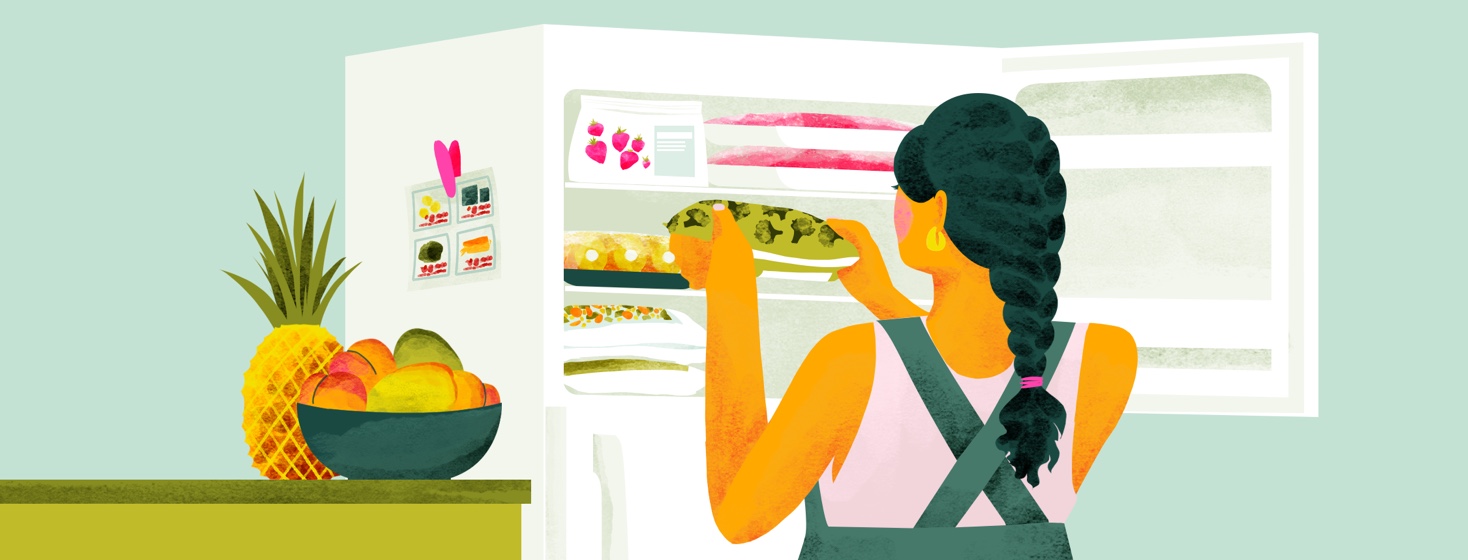Eating Healthy Without Breaking the Bank
Many people who are diagnosed with IBS have made dietary changes to help manage their symptoms. Some have found great success with eating a low FODMAP diet, while others have found that even "safe" foods can trigger a flare-up.
Regardless, fueling your body the right way can greatly affect your overall health. Although many of us have a general idea of how to eat healthily, it can be overwhelming when looking at the sometimes steep prices for healthy options! Not only can eating healthy seem too expensive of a task, but it can also seem to consume a lot of time to prepare IBS-friendly meals. However, these simple tips and tricks may help you move towards eating nutritiously without breaking the bank.
How to save money
While good food can come at a higher price, adjusting your budget or the way you shop may free up some extra wiggle room to spend a little more. Some of these simple adjustments may free up more money than expected to put towards higher quality items:
- Shop at budget-friendly stores and buy generic or the store brand
- Go grocery shopping alone and stick to a pre-planned list. Stock up when something you frequently buy is on sale!
- Buy items in bulk that don’t spoil easily. Opt for frozen produce when possible
- When buying fresh produce, buy what is in season. Frequenting local farmer’s markets can be a great way to get a good deal. Sometimes farmers are more willing to negotiate on price if you arrive at the end of the market hours.
- Take advantage of store rewards points, sales, and coupons. There are also many money-saving apps, like Ibotta
- Try to avoid buying bottled water
Invest in nutrient-dense foods
While fast food can be inexpensive and quick, many of the additives and processes used to make these items may do more harm to our bodies. For example, junk food serving sizes are typically very small which may make you feel hungrier soon after ingesting. This can lead to more spending (on another meal because you’re hungry again!). Junk food, particularly when it contains a lot of sugar, can also make you feel sluggish.
On the other hand, fruits and veggies are much more nutrient-dense and will keep you fuller, longer. Of course, it is important to note that fructose sensitivities might make this difficult to do. Manage your portion sizes so that you can still get the benefits without causing a flare. Eating a large serving of fiber-packed produce and grains might sound like a nightmare to someone with IBS. However, the right portion may actually fill you up longer and give you more energy than a quick alternative.
Only you know what your time and budget needs are but if you feel like you’re picking convenient options because you’re exhausted or are not feeling up to making a meal at home, it could be time to invest in options that will give you more energy and strength to get through the day!
Resources for eating healthy
Did you know that there are governmental and non-governmental sources of support that can help you purchase healthier options? Some programs can even assist you in making meals if you qualify. Check out some of these options below to see if they may work for you:
- WIC (Women, Infants, and Children)
- SNAP (Supplemental Nutrition Assistance Program)
- The Emergency Food Assistance Program (TEFAP)
- Nutrition Programs for Seniors
While healthier foods may seem more expensive, often the long-term benefits greatly outweigh cheaper processed food. Not just in terms of saving money, but also by increasing energy, enjoying larger portion sizes, and overall positive health effects. Only you know what you have the time and budget for, but eating healthy doesn’t have to be a scary or overwhelming feat.
What are your tips on eating healthy without breaking the bank?

Join the conversation